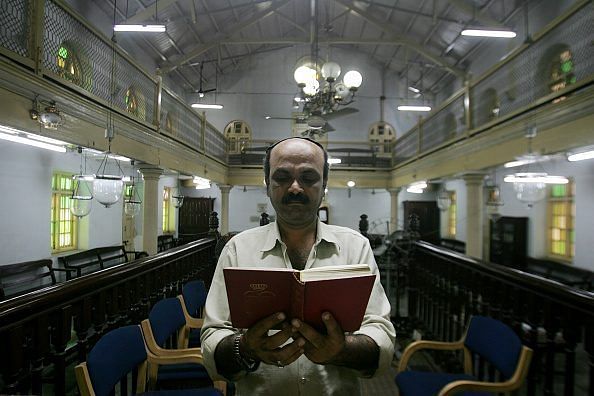Increased security at synagogues, support from government and reopening of the Chabad House have made Mumbai’s Jews feel safe again.
Mumbai: The 26/11 attack on Mumbai by Lashkar-e-Taiba terrorists from Pakistan scarred India’s commercial capital but also particularly rattled its Jewish community as it was a specific target.
The raid on Chabad House, the Jewish centre of the ultra-orthodox Chabad-Lubavitch movement in south Mumbai, left the community feeling, for the first time, vulnerable and unsafe. That Jews in India, who have a proud heritage free of anti-semitism, had been targeted for being Jews.
Over the years, this small community of about 5,000 people in Maharashtra has gradually come out of the shadow of the terror attacks. Increased security at synagogues, support from the Mumbai Police and the state government, an official minority status for the community and reopening of the Chabad House have all gone a long way in making Mumbai’s Jews feel safe again, community members say.
“For so many years we were under the impression that we had nothing to fear in India because we have excellent relations with all communities — Hindus, Muslims, among others. After the attack, we felt like we were a soft target,” said Jonathan Solomon, chairman of the Indian Jewish Federation.
“Members of the community were muted for some time. People were not getting together in large numbers, but we received a lot of support from the government. India’s continued cordial political relations with Israel too have boosted the community’s confidence,” he added.
Earlier this year, Prime Minister Narendra Modi met and hugged 26/11 survivor Moshe Holtzberg during his visit to Israel and brought smiles on the faces of Jews back home. Moshe, now 11, was just two years old when his father Rabbi Gavriel Holtzberg and his pregnant mother Rivka were killed in the attack on Nariman House on 26 November 2008.
The Nariman House was one of the main targets of the Pakistani terrorists who attacked the city and held it under siege for three days, killing 166 people. The building, which suffered extensive structural damage in the attack, was restored six years later and reopened in 2014. The Chabad House resuming its operations from the same building sent a strong message of optimism within the community, Jewish leaders in Mumbai said.
“The Chabad House is mostly frequented by foreign Jews who visit India. None of the 10 synagogues in Mumbai were attacked, but the Chabad House was, which means it was more to frighten foreign Jews coming to Mumbai,” said Solomon Sopher, chairman of the Sir Jacob Sassoon Synagogues and Allied Trusts.
“However, an attack on one group of Jews is an attack on all of us and we have been helped a lot by the Maharashtra government and the Mumbai police to secure other Jewish landmarks in the city,” he added.
But, despite the 26/11 attack, Jews and Muslims continue to have excellent relations in the city, where a few Jewish synagogues stand in the heart of Muslim areas, Sopher said.
“Jews and Muslims have lived in India as brothers and that will continue. It is the terrorist organisations that are a threat. I am the chairman and managing director of a Jewish school in Mumbai where 98 per cent students are Muslims and their parents are very happy to be associated with us,” said Sopher, who is also president of the India Jewish Congress.
A few scars of the incident, however, still remain. Jewish landmarks are not as open as they used to be and there are undercurrents of suspicion towards strangers among the members of the community.
“All our synagogues have tight security now. We don’t allow non-Jews inside our synagogue. They can come only if they are accompanied by a member of the community. Before 26/11, anyone could walk in,” said Judah Samuel, president of the Shaare Rason synagogue in south Mumbai.



